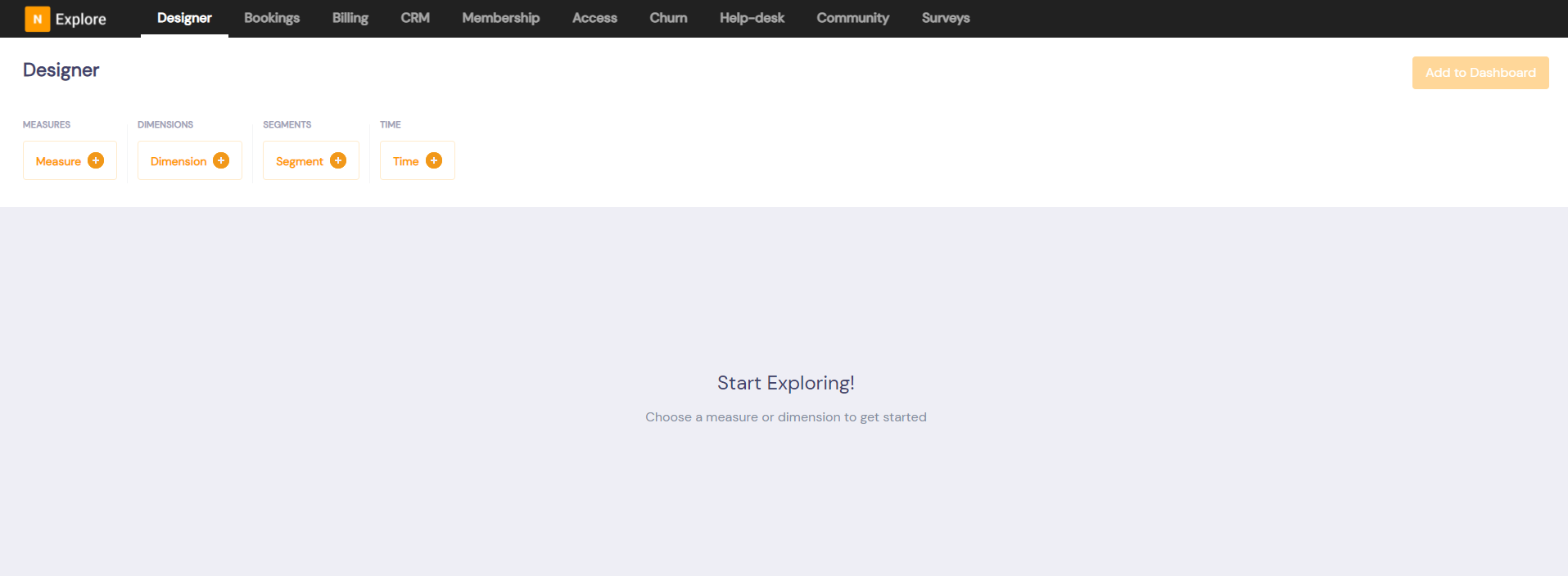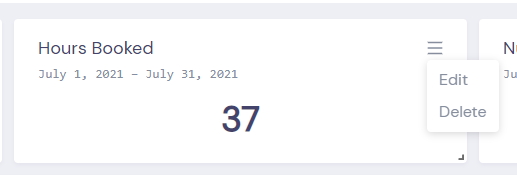This article covers how to use the Designer module of Nexudus Explore
Remember that the designer is available with any version of Nexudus Explore, but you can only create and update custom reports and dashboards if you use Nexudus Explore Pro.
Accessing the Designer
You can access the designer to create a new query by clicking on the "Designer" tab.

If you want to edit an existing query within one of your dashboards, you can click on the menu and use the Edit option.

Using the Designer
The Nexudus Explore Designer lets you build Queries which you can then add to one of your Dashboards.
Queries use six important concepts:
- Measures are quantitative data like the number of members in your space or the total amount of payments you've received.
- Dimensions are qualitative data like customer full names and the loss reason in your CRM board. Adding an attribute to a query "slices" your results to make them more relevant and useful.
- Segments are predefined filters so your query pulls data from a smaller subset out of all the data available for your space. For example, "Companies", as a subset of all your customers or "Lost Opportunities" as a subset of all your opportunities.
- Time: is the period of time the query will include data. The time parameter for a query can also help you group data by a time range, for example, every week, every month or every day.
- Filter: is any additional criteria that will affect the data being returned by the query.
- Order: for tabular data, you can choose the order to show the records in. If no order is provided, Explore will use:
The first time dimension with granularity, ascending. If no time dimension with granularity exists...
The first measure, descending. If no measure exists...
The first dimension, ascending.
This becomes easier to understand with an example. Take the following query:
The number of bookings by each customer that was placed a week by members set as individuals during the last 6 months.
Let's dissect this query to understand how it maps to the different concepts in a query
- Measures: "the number of bookings"
- Dimensions: "by each customer"
- Segments: "set as individuals"
- Time: "during the last 6 months", "placed a week"
- Filter: "by members"